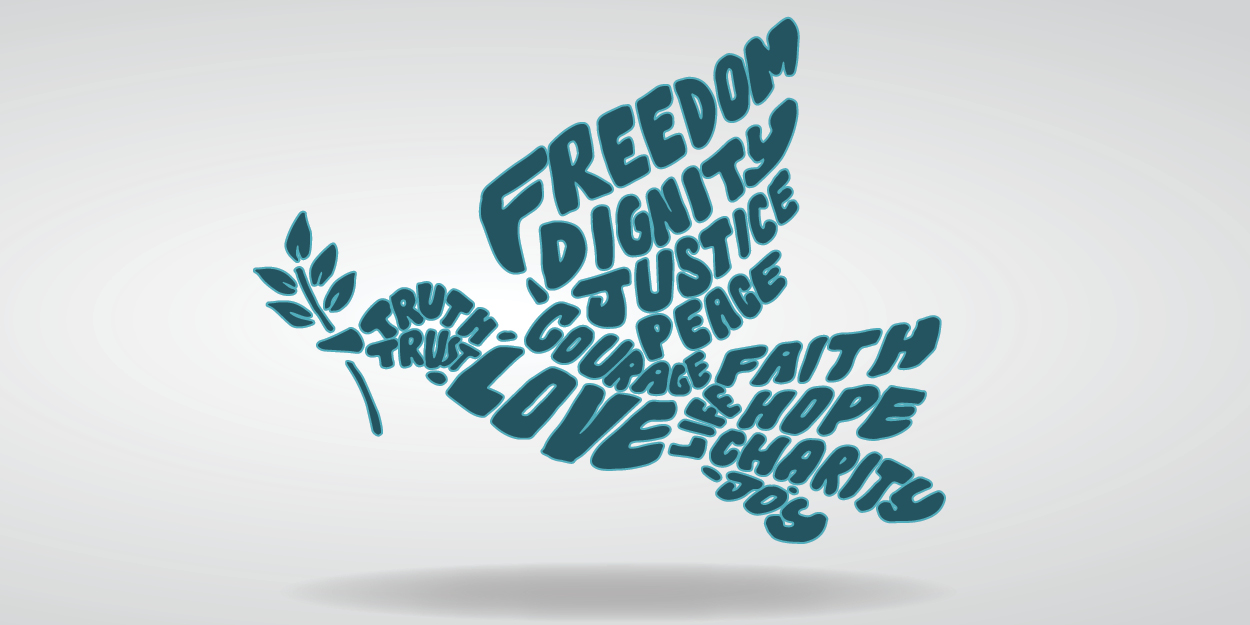Magazine

Justice: The Joy of Things Put Right
Spring 2022
N.T. Wright
N.T. Wright is senior research fellow at Wycliffe Hall, Oxford, and has previously served as bishop of Durham in the Church of England and research professor of New Testament at the University of St. Andrews. At the 2022 CCCU International Forum, he gave a plenary talk about the biblical vision for justice. The following excerpt is from that presentation; to view it in full, visit the CCCU’s YouTube channel (www.youtube.com/CCCUvideo).
When we say the word “justice,” what emotions come to mind? Many people today might think of the rather grim atmosphere of a law court, or the dark satisfaction people get when a vicious criminal who has ruined people’s lives is finally caught and punished. …
In the Bible, the word “justice” belongs closely with rescue or salvation, and so would call forth the emotion of joy. Think of the Psalms. “Let the heavens be glad,” says Psalm 96. “Let the earth rejoice. Let the sea roar and all that fills it. Let the field exult and everything in it. Then shall all the trees of the forest sing for joy before Yahweh, for he is coming. He is coming to judge the earth. He will judge the world with righteousness and the peoples with his truth.”
There are many Psalms that say the same thing. Think of Isaiah, too, including that messianic passage in chapter 11, when God equips the coming king with his own Spirit of wisdom and understanding so that “he will judge the poor with righteousness and decide with equity for the meek of the earth.” That introduces the startling prophecy of a new creation, which will abolish the traditional hostilities in the animal kingdom. … A similar prophecy comes later in chapter 65 within the promise of new heavens and new earth. Again, there’s a sense not just of astonishment, but of joy.
It isn’t hard to see why. Suppose you lived in a village in ancient Israel. Community life throws up many problems and disputes and apparent injustices. Rich and powerful people can easily exploit the poor, the widows, and the orphans who have nobody to stand up for them. But once in a while, the judge comes around on his regular circuit, and the people who have been oppressed or robbed of their rights or their livelihood are longing for this moment. Things will be put right at last. The whole community will heave a sigh of relief. Justice means rescue. It means celebration. It means joy. …
Now, these are just snapshots of the underlying biblical picture. They give us a clue not only to what people will think and feel when the Creator God finally does put things right, but also to the theological framework within which this makes sense. The God of the Bible doesn’t act at a distance. He doesn’t give instructions from a long way off while keeping his own hands clean. It seems that his reason for making this world in the first place was because he wanted — and still wants and intends — to make this world his own home. He wants to fill all creation with his glory, his love, his power, his justice. …
Many people in Western Christianity have totally ignored this theme, because it’s routinely been taught or just assumed that the point of biblical faith is finally to leave this world and go to dwell with God in his home somewhere else. But the Bible tells the story the other way around. It’s about God coming to dwell with us, and that’s why justice is such a priority. God wants to dwell with people, and since he is the Creator, he has set things in motion so that things can be put right as far as possible in advance of his final coming when he will complete the job. He will do this work of judgment and justice not because he’s a stern moralist eager to pounce on and punish anybody who steps out of line, but because he is the good and wise Creator, who longs to see his world reflecting and finally embodying his own glory.

